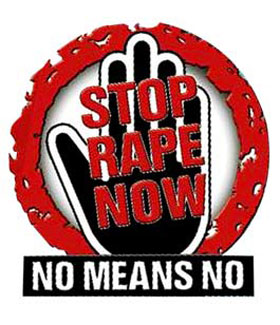When the outrage ebbs, when people get back to work and students to colleges and it’s business as usual, will Indian society still think that a woman who has been raped is a “zinda lash” (living dead) having undergone a fate worse than death?

The discourse since Dec 16 when the 23-year-old was raped has been muddled but welcome, putting the spotlight on crimes against women and forcing introspection on issues that millions of women in India face everyday, multiple times a day.
Rape is the most extreme form of violence in the spectrum of crimes against women, and the savage assault on the 23-year-old Delhi girl, who died of horrific injuries 13 days after she had been left stripped and bloody on the road, is indeed in the category of rarest of rare that warrant death in India’s statute books.
But just as terrorism will not and has not stopped because Ajmal Kasab was hanged, justice cannot be served with the demand for death penalty or chemical castration.
Those in the women’s movement have long been arguing that giving death to a rapist or castrating him will serve no long-term solution. Nor will it be a deterrent. Rape is not so much a function of sexuality as a need to demonstrate power.
A woman who has been raped must get justice but it will not end with hanging her rapist, those shouting for death penalty need to understand. Speedier trials and a higher rate of conviction – right now at just over 25 percent – with witnesses not terrorised into turning hostile and sensitive handling of the woman who makes a complaint will go a long way in providing that deterrent.
But justice must be carried out in every which way for the woman subjected to rape or other forms of sexual assault, aggravated and otherwise. She deserves to live a life that offers her every opportunity to heal.
True justice will come only when society offers her a true chance at rehabilitation, and an end to the stigma – that should not be hers or her family’s but the those who committed the crime. The onus of victimhood has to end.
And an orthodox society that pushes an already traumatised woman into a life of isolation and shame should know that, as should the thousands who have taken to the streets. Deeper introspection is called for, questions that call for shedding age-old biases.
“I am exultant at being alive. Being raped was terrible beyond words, but I think being alive is more important. When a woman is denied the right to feel this, there is something very wrong in our value system,” Sohailla Abdulali, who was raped in Mumbai when she was 17 and now studies in the US, has written in Manushi.
“Time and again, people have hinted that perhaps death would have been better than the loss of that precious ‘virginity’ I refuse to accept this. My life is worth too much to me,” the rape survivor has written.
So when opposition BJP leader Sushma Swaraj said in parliament that the Delhi victim would be a “zinda lash” were she to survive, she echoed the societal bias and undermined her struggle for life. It was a well-intentioned remark, made at a time when the Delhi girl was fighting a courageous battle to live in Safdarjung Hospital.
The girl died a few days later, on Dec 29 in a Singapore hospital, leaving an entire nation in shock and in grief.
Now the time has come to channelise that rage into constructive changes – a more responsive establishment, a more efficient system to implement the law, a stronger legal framework and a more sensitive media that continues to highlight cases of gender injustices. And, above all, a people more receptive to the trauma of a woman and her needs.
She doesn’t need to be Nirbhaya, Damini or Amanat. That is just ridiculous, insensitive branding. She is the everyday woman who should not be facing horrific, stomach churning brutality to evoke a response.



